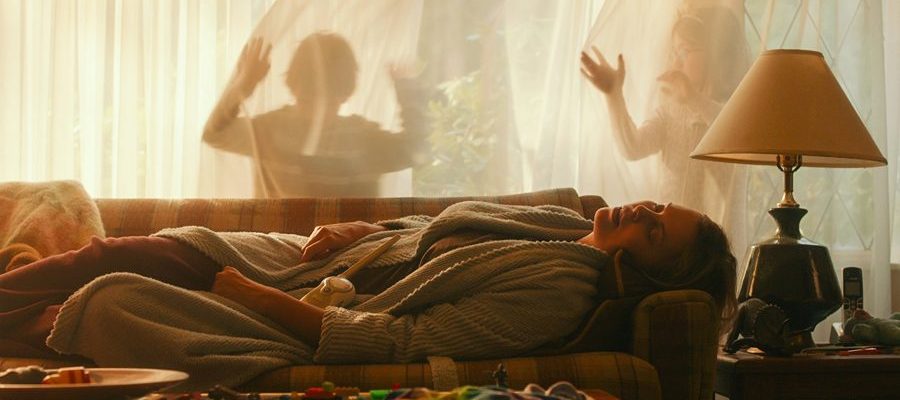Review: 'Tully's Deceiving Simplicity

Christian Ziolkowski ’20 / Emertainment Monthly Staff Writer
Depending on one’s metric for success, Tully can be considered an artistic triumph or a cheap piece of manufactured cynicism disguised as humor. Equally convincing cases can be made for both sides. The only certainty is that Diablo Cody and Jason Reitman have created something fresh and new. Tully is a bold artistic statement that will not only divide viewers, it might even divide your mind. That alone is worth celebrating.
Before going any further, it should be said that Tully is a film that just needs to be experienced. While this can be said of any film, Tully truly defies summarization. When a film’s whole is this much greater than its parts, the best recommendation a critic can make is to see the film blindly. The less you know before you step into the theater, the better.
That said, Tully sees the creative team behind Juno and Young Adult forced to grow up. Cody and Reitman abandon most of their snark in favor of a sophisticated reflection on aging, parenthood, and the different experiences of men and women. Whether their reflection has any merit is debatable, but their sincerity is apparent.

Concerned for her well-being, Marlo’s wealthy brother (Mark Duplass) hires her a night nanny. The young caretaker, Tully (Mackenzie Davis), watches the baby at night so that Marlo can sleep. But Tully quickly begins taking care of Marlo as well, paying attention to her emotional needs that everyone else has been neglecting. The two form a codependent relationship that revitalizes Marlo’s psyche.
And things just get weird from there.

Her husband (Ron Livingston) is living in ignorant bliss. His life is also unfulfilling, but he is unburdened by the stresses of childcare. Marlo says he enjoys parenting “in a dad way.” He comes home at night and puts in time with his kids when he wants to, but he avoids the daily grind. He is unaware of Marlo’s plight, as he assumes that she must be happy.
Tully’s approach to parenthood can be described as unnecessarily bleak. It makes parenthood out to be a slog, at times falling into the “showing the bad side of life to look edgy” trap. We live in an era where Stephen Colbert consistently beats Jimmy Fallon in the ratings. When it comes to comedy, optimism is out and pessimism is in. Some might question the value of this, and say that Cody has added rust to something shiny for the sake of being unique.

It is often said that the best art makes you think, without doing the thinking for you. If that is the case, then Tully is nothing short of spectacular. It will keep you thinking for days. But those who want a clear raison d’être should seek entertainment elsewhere. There is no doubt that Cody is engaging with the human condition in an honest way. But it is unclear whether her worldview will explain anything, or make anybody’s life better.
When reviewing films, it is usually easy to place them into the categories of “good” and “bad.” One can tell if a film deserves a thumbs up or down within thirty minutes. Tully defies such characterization. It is an optical illusion that changes based on the angle from which it is viewed. It is too complex for the era of Rotten Tomatoes when every film is graded in black and white terms. And that, in and of itself, makes it a film worth celebrating.
Overall Grade: A-
Watch The Trailer: